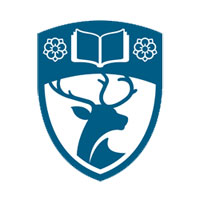fees waived
Chemistry with Medicinal Sciences, BSc (Hons)
University of Southampton, United Kingdom
Subject ranking
UK / QS 2025 13th
UK / Guardian 2025 13th
UK / THE 2025 14th
Costs
food & rentS$17.3K / year
Entry requirements
Scholarships
21 - 50 available
10 available
Unlimited quantity
Unlimited quantity
Limited quantity
Information
Code
Intakes
Website (External)
Programmes
Information
Duration
2028
This flexible three-year degree explores the intersection of chemistry and medicinal sciences to advance disease treatment. Students examine the full drug development cycle, including designing therapeutic molecules, predicting drug-body interactions, and evaluating treatment safety and efficacy. Learning from world-changing researchers, such as those developing cancer drugs and synthetic DNA for COVID-19 testing, students benefit from a supportive community with personal tutors, small groups, and access to state-of-the-art laboratories featuring NMR spectrometers and X-ray diffractometers, all enhanced by recent investments.The program comprises 75% chemistry and 25% biology modules, emphasizing sustainability in drug manufacturing and practical techniques. In the final year, students undertake a medicinal science research project while selecting from options like pharmacology and sustainable chemistry. Assessment includes exams, coursework, and project reports. Graduates are well-prepared for diverse careers in drug discovery, public health, laboratory services, or teaching, with career guidance provided throughout.
"Modules This degree is made up of 75 per cent chemistry modules and 25 per cent biology modules. Sustainability is a key theme in our chemistry courses – you’ll learn about new technologies that are making drug manufacturing more environmentally friendly, as well as using the latest ‘green’ practices in your own lab work. Years one and two You’ll gain a foundation in the fundamentals of organic, inorganic and physical chemistry, as well as practical lab techniques, as a basis for your specialist studies in year three. You’ll also take one of two biology modules: Fundamentals of Biochemistry or Fundamentals of Cell Biology and Physiology. Core modules in the first and second year are shared across most of our chemistry degrees. This makes it is possible to transfer to the MChem programme. Year three You’ll undertake an individual research project linked to medicinal science, and take Medicinal Chemistry, Advanced Organic Chemistry (Bioorganic) and Pharmacology modules. You’ll also choose from biology and chemistry options including: · Cancer Chromosome Biology · Molecular Cell Biology · Selective Toxicity · Sustainable Chemistry · Synthetic Methods in Organic Chemistry"
A local representative of University of Southampton in Singapore is available online to assist you with enquiries about this course.

